![]()
Mon, April 04, 2011 | Cagaptay.com | By H. Akin Unver and Soner Cagaptay
Turkey’s Opposition Turns Social Democratic: Will the Turks Follow?
This article was first published in the PolicyWatch #1792, a publication of the Washington Institute for Near East Policy. It’s reprinted here with permission of Soner Cagaptay.
While the Turkish Justice and Development Party’s (AKP’s) record on democracy and foreign policy is less than perfectly in accord with European or U.S. preferences, the Turkish opposition has often appeared even worse, given its chauvinistic nationalism, shortsightedness, and anti-Western views. Signs indicate, however, that this dynamic is changing. Since taking over as chair of the main opposition Republican People’s Party (CHP) in May 2010, Kemal Kilicdaroglu has revamped the party. Still, it is unclear how successful the new CHP will be in the June 2011 parliamentary elections.
The “Old” CHP
In the 1990s, the CHP performed dismally at the polls. The low point came in 1999, when the party failed to meet the 10 percent threshold necessary to attain representation in the parliament. In the past decade, popular support for the CHP rebounded somewhat, even though it never won a quarter of the votes. In the 2002 and 2007 general elections, the party received 19 percent and 21 percent of the votes, respectively, while in the local elections of 2004 and 2009, it garnered 18 percent and 23 percent.
Backing for the CHP plateaued in the late 2000s, in large part because of the party’s failure to put forth a compelling vision for the country against that of the AKP. Furthermore, the CHP’s “old Kemalists” — who emphasize rigid secularist-nationalist modernization over democratization and popular representation — were perceived to be stifling the party’s youth movement, thus alienating younger, secular liberals. Ultimately, CHP voters and party members demanded a structural change in which leadership would be passed to the next generation.
The “New” CHP
After becoming party leader, Kilicdaroglu began to transform the CHP from its previous ossified state into a dynamic, social democratic movement. In the process, he has pushed the party toward adopting a strong pro-Western stance, in contrast to the AKP’s foreign policy, which is focused largely on religion-based alliances in the Middle East. In a recent interview with Turkish Policy Quarterly, Kilicdaroglu said, “The new CHP is committed to the goal of Turkey’s accession to the EU.” He set this position against that of the AKP, which, he said, “does not feel at home as a member of the Euro-Atlantic community.”
At the heart of the changes wrought by Kilicdaroglu was the overhaul of the party’s eighty-member assembly. In particular, he paved the way for the election of younger and lesser-known members — a move interpreted by analysts as the “revolution of the new Kemalists.” Of those elected to the new assembly in December 2010, just thirty-four are associated with the old Kemalist branch of the party, and even these figures typically fall closer to the working class politics of the late Bulent Ecevit — who served three terms as prime minister in the 1970s as well as from 1999 to 2002, and who led the CHP from 1972 to 1980 — than to Kilicdaroglu’s predecessor, Deniz Baykal. Ecevit had attempted to build the CHP into a “social democratic alternative for the disaffected.” And, indeed, of the forty-six newly elected assembly members, ten come from the ranks of progressive activism, such as labor unions. Balancing labor with business, the assembly also includes eleven new pro-business figures from the arenas of international trade, industry, and private enterprise. Signaling a commitment to improve gender equality in political representation, the new assembly has twenty-one women, a record number.
The powerful eighteen-member executive committee of the CHP, which runs the party on a daily basis, consists of seventeen new members who represent liberal, progressive, and social democratic forces in a higher concentration than even the party assembly. The high-profile members of the assembly and executive committee include the following:
- Binnaz Toprak, a professor of sociology and the lead author of an influential 2006 study documenting the role of AKP-promoted social conservatism in driving social change in Turkey.
- Sezgin Tanrikulu, a Kurdish rights advocate and lawyer who successfully sued Turkey in the European Court of Human Rights for abuses committed by Turkish security forces in the 1990s. Tanrikulu’s inclusion in the party assembly could be seen to reflect a departure by the CHP from its nationalist position on the Kurdish question and the adoption instead of a stance rooted in human rights.
- Gursel Tekin, former head of the CHP’s Istanbul branch. Having built significant grassroots support for the party, he is considered by many the “second man” of the new CHP, replacing Onder Sav, the party’s longest-serving vice chairman in the “old Kemalist” tradition.
- Izzet Cetin, whose background is in grassroots social-democratic politics, human rights nongovernmental organizations, and unions.
- Faik Oztrak, who served formerly as undersecretary of treasury and is known for his social democratic views regarding wealth distribution.
- Faruk Logoglu, a prominent pro-Western diplomat who served as Turkey’s ambassador from 2001 to 2005 in Washington, D.C.
- Osman Koruturk, a retired pro-Western senior diplomat in charge of the party’s foreign policy planning.
These figures’ inclusion in the highest echelons of party decisionmaking indicates the party’s aim to connect with disaffected sectors of the population — namely, liberal Turks, rural voters, and blue-collar workers — who have been throwing in their lot with the ruling AKP.
The new executive committee has retained only one member from the previous committee: Erdogan Toprak, who is responsible for press and public relations.
Will the “New” CHP Succeed?
While these changes in the CHP may be interpreted as a move toward social democratization, critics argue that the party’s new technocratic and academic leadership resembles more a panel of experts than a grassroots political machine ready to connect with the masses.
Nonetheless, public opinion surveys conducted following Kilicdaroglu’s election initially showed the CHP leadership change to be well received. A May 2010 poll conducted by the Istanbul-based SONAR organization showed the CHP to be Turkey’s most popular party for the first time since the AKP’s 2002 victory — albeit by the slender margin of 32 percent to 31 percent for the AKP. In another poll, conducted in the same month by MetroPoll, 63 percent of respondents declared their support for the change in CHP leadership. Furthermore, following the election of Kilicdaroglu as CHP party chairman, 22.5 percent of respondents who had never previously voted for the CHP claimed they would back the CHP for the first time in future elections.
The increasing political bias of Turkish polling organizations, however, must be taken into account when considering the results. For example, in a July 2010 survey by Andy-Ar, the CHP trailed the AKP in overall support by 41 percent to 26 percent.
In addition, early support for the new CHP leadership seems to have wavered, based on expectations by the electorate of concrete policy positions. Thus far, the party has introduced a “family insurance” welfare program but has yet to deliver position papers on pressing problems such as unemployment, the Kurdish question, and how to draft Turkey’s new constitution — with the constitutional issue topping the AKP’s list after the June polls.
Yet another disadvantage facing the CHP leadership involves increased pressure by the AKP on the media to refrain from supporting the newly recalibrated party. In the longer run, the CHP may indeed provide Turkey with a social democratic, pro-Western alternative to the present leadership, but it will likely struggle to transmit its message clearly enough and gather sufficient grassroots strength to unseat the AKP in the June 2011 elections.
H. Akin Unver is the Ertegun Lecturer in Near Eastern Studies at Princeton University. Soner Cagaptay is director of The Washington Institute’s Turkish Research Program.



 RSS
RSS


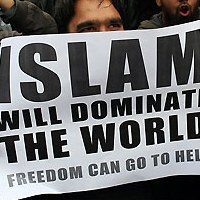
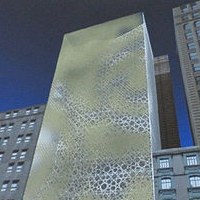
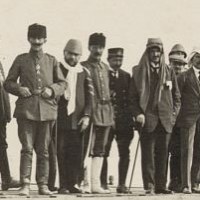
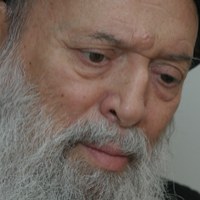
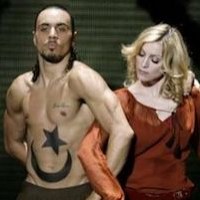




#Turkey’s Opposition Turns Social #Democratic: Will the Turks Follow? | #CHP #AKP http://j.mp/g5SBsZ
RT @CrethiPlethi: #Turkey’s Opposition Turns Social #Democratic: Will the Turks Follow? | #CHP #AKP http://j.mp/g5SBsZ